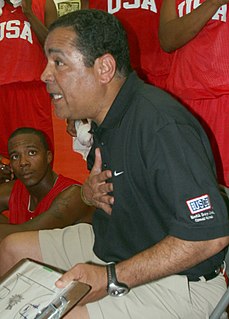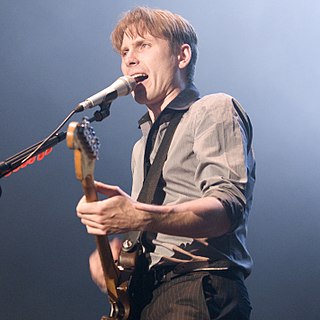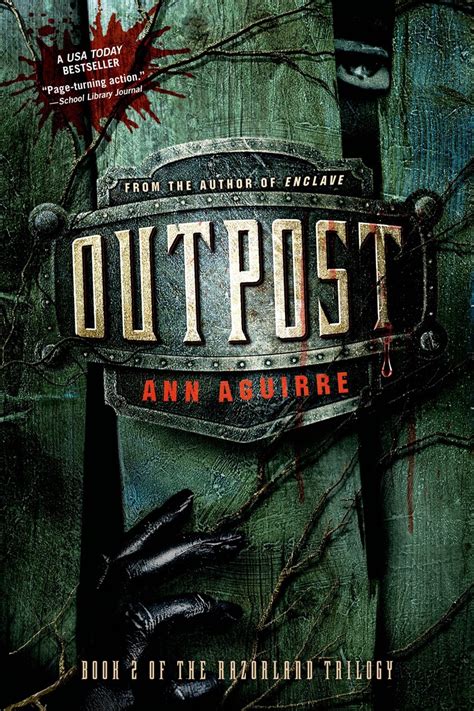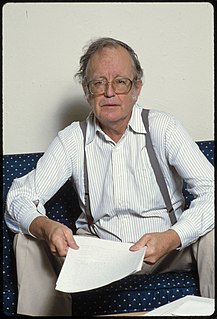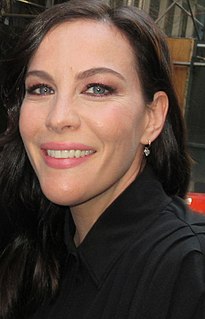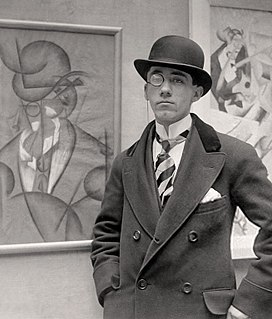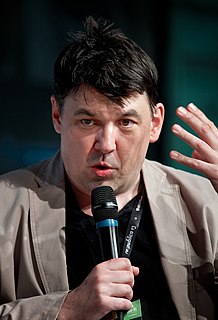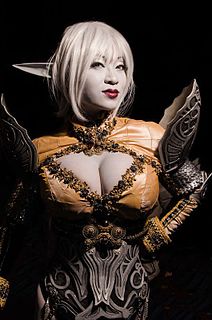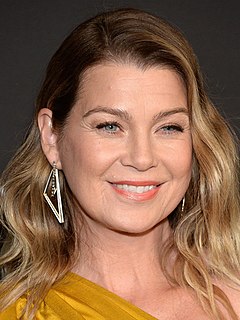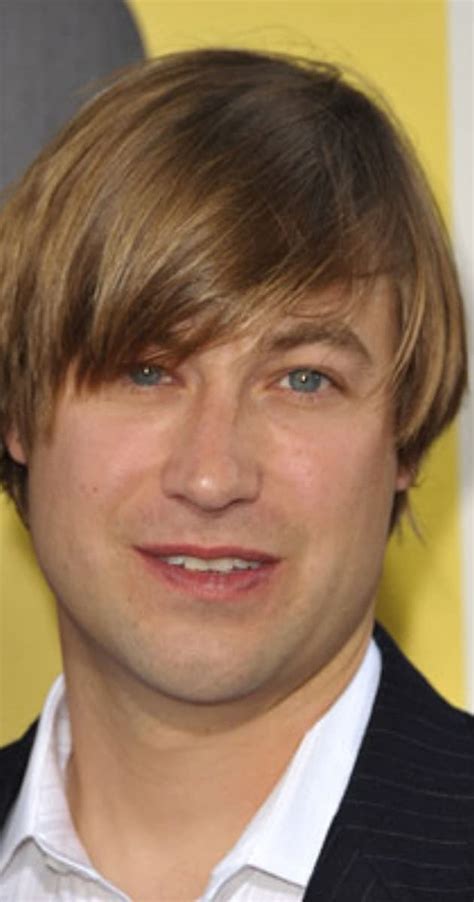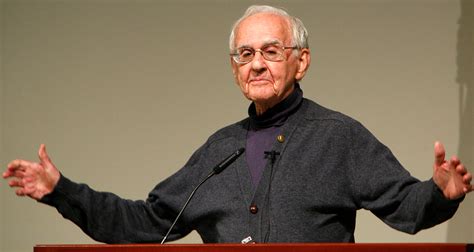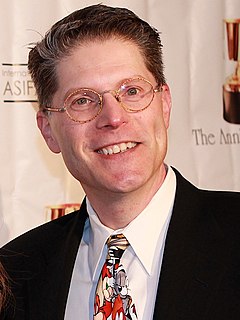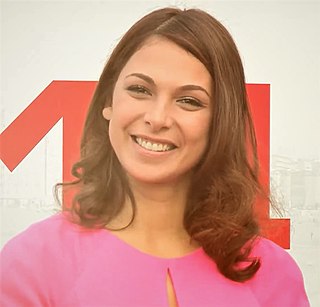Top 1200 Dynamic Characters Quotes & Sayings - Page 2
Explore popular Dynamic Characters quotes.
Last updated on April 21, 2025.
Well the thinking is we have the highest tax rate in the world. In the entire world, we have the highest tax rate. There's gridlock in Washington because there's no leadership. So what I'm doing is a large tax cut especially for the middle class and they're gonna- we're going to have a dynamic country. We're going to have dynamic economics. And it's going to be something really special. And people are going back to work.
In Hinduism, Shiva the Cosmic Dancer, is perhaps the most perfect personification of the dynamic universe. Through his dance, Shiva sustains the manifold phenomena in the world, unifying all things by immersing them in his rhythm and making them participate in the dance - a magnificent image of the dynamic unity of the Universe.
A dynamic person is one who really makes a difference in the world; who does something that changes things or other people. The magnitude of the work done may not be great, but the world is different because that person has lived and worked. The real secret of a dynamic personality is to believe that God works through you, whatever you may be doing; to put his service first, and to be as sincere, practical, and efficient as you know how.
It sounds really corny but every film that you do is its own journey, it's its own experience, it's its own thing. Often you think it's going to be one way and then it goes another way - you think you can chart a character and then other things happen. That's the amazing thing about our jobs, it's constantly changing and it's extremely dynamic and you therefore have to be dynamic as well.
For me upward social mobility is possible through talent and hard work and is a glowing endorsement of the benefits of living in a modern capitalist society. It's not so much evidence of a meritocracy, as evidence of healthy nepotism. Nepotism is at the core of a good group dynamic. A good group dynamic is at the core of rock'n'roll.
A problem that I have with everything fictional is that writers are always having to come up with sudden artillery explosions in the middle of whatever is going on. The characters are having interesting, subtle interactions, or jealousies, or whatever it is, and suddenly some gigantic angry eruption has to happen, a giant gasp where everyone has to scramble around. That's the point where I'm turned off. I want the dynamic range to be a little smaller. I don't like the big false bangs.
The thought of the novelist lies not in the remarks of his characters or even in their introspection but in the plight he has invented for his characters - in the juxtaposition of those characters and in the lifelike ramifications of the ensemble they make: their density, their substantiality, their lived existence actualized in all its nuanced particulars, is in fact his thought metabolized.
Remember: Plot is no more than footprints left in the snow after your characters have run by on their way to incredible destinations. Plot is observed after the fact rather than before. It cannot precede action. It is the chart that remains when an action is through. That is all Plot ever should be. It is human desire let run, running, and reaching a goal. It cannot be mechanical. It can only be dynamic.
There is an alternative to terror. It is called, in the political order, democracy. In the economic order, it is called the dynamic enterprise economy. (...) It empowers poor people from the bottom up. (...) A dynamic economic sector is the poor's best hope of escaping the prison of poverty. It is the only system so far known to human beings to take poor people and make them, quite soon, middle class, and some of them even (horrors!) rich.
Unlike most wars, which make rotten fiction in themselves - all plot and no characters, or made-up characters - Vietnam seems to be the perfect mix: the characters make the war, and the war unmakes the characters. The gods, fates, furies had a relatively small hand in it. The mess was man-made, a synthetic, by think tank out of briefing session.
My family dynamic is quite eccentric. I have two fathers. I think it depends on the relationship between the child and the parents, but definitely, when it comes to being a stepparent or a coparent, it's a different relationship. There's just as much love, but the bonds can be different. It depends when you come into their life and how well you know them - this dynamic takes a lot of patience and love.
I'm mostly interested in characters and how they manifest themselves in their relationships. I'm delighted that people relate to the characters in 'Bojack,' and hopefully they will too to the characters in 'Undone.' If they understand themselves or feel seen in a new way, I think that's a wonderful thing.
It should also be born in mind that the research on 'movement' and the dynamic outlook on the world, which were the basis of Futurist theory, in no way required one to paint nothing but speeding cars or ballerinas in action; for a person who is seated, or an inanimate object, though apparently static, could be considered dynamically and suggest dynamic forms. I may mention as an example the 'Portrait of Madame S.' (1912) and the 'Seated Woman' (1914).
When writers are self-conscious about themselves as writers they often keep a great distance from their characters, sounding as if they were writing encyclopedia entries instead of stories. Their hesitancy about physical and psychological intimacy can be a barrier to vital fiction. Conversely, a narration that makes readers hear the characters' heavy breathing and smell their emotional anguish diminishes distance. Readers feel so close to the characters that, for those magical moments, they become those characters.
If you're not careful people will judge you based on these appearances and they will pigeon hole you that this is the person that you are. Your shy, your aggressive, your this type or that type and you lose the control of the dynamic, they become the ones that determine who you are. A powerful person never loses control of the dynamic they are in someway in control.
To me, feminism in literature deals with the female characters being in some way central to the thematic concerns of the book, or that they are agents of change to some degree. In other words, the lens is focused deeply and intensely on the female characters and doesn't waver, which allows for a glimpse into the rich inner lives of the characters.
The enormous dynamic and creative, as well as destructive energy of capitalism... is written up with more praise and more respect by Marx and Engels in the 1848 Communist Manifesto than probably by anyone since. I don't think anyone has ever said so precisely and with such awed admiration how great capitalism is, how inventive, how innovative, how dynamic, how much force of creativity it unleashes.
I don't have a preference for bad people, no. I have an interest in playing a broad range of characters. Obviously, I'm mostly identified with a character who is very responsible, very solid and very intelligent, but there are plenty of questionable characters in my past career. I'm interested in exploring theatricality and characters with some dimension.
I have this awareness that the more dynamic the situation is, the more on guard I need to be that the dynamic isn't controlling the situation. I found that myself in the Galapagos. For the first time in my life I was around very exotic animals, colorful, beautiful, and immediately present, all around. Birds, turtles, iguanas, seals. I was being seduced by their exoticism, I was taking pictures.The pictures weren't well lit, there was no moment in play, there was no depth to the pictures. I was just gawking with my camera at something I'd never seen before.
Make sure your characters are worth spending ten hours with. That’s how long it takes to read a book. Reading a book is like being trapped in a room for ten hours with those characters. Think of your main characters as dinner guests. Would your friends want to spend ten hours with the characters you’ve created? Your characters can be loveable, or they can be evil, but they’d better be compelling. If not, your reader will be bored and leave.
I have always liked kind of outsider characters. In the movies I grew up liking, you had more complicated characters. I don't mean that in a way that makes us better or anything. I just seem to like characters who don't really fit into. You always hear that from the studio: "You have to be able to root for them, they have to be likeable, and the audience has to be able to see themselves in the characters." I feel that's not necessarily true. As long as the character has some type of goal or outlook on the world, or perspective, you can follow that story.
I think at some level, it's just alchemy that we, as writers, can't explain when we write the characters. I don't set out to create the characters - they're not, to me, collections of quirks that I can put together. I discover the characters, instead. I usually go through a standard set of interview questions with the character in the beginning and ask the vital stuff: What's important to you? What do you love? Hate? Fear? .. and then I know where to start. But the characters just grow on their own, at a certain point. And start surprising me.
Somehow, the agenda has been put into the form of talking about a set of transitions from state A, the present, to a state B that's sustainable. The problem is that there is no such state. You have to assume that the transitions are going to continue forever and ever and ever. You have to talk about systems that are continuously dynamic, and that are embedded in environments that themselves are continuously dynamic.
The American horror movies are more moralistic, they have not only good characters, but characters where the ultimate danger is death. What I like about European cinema is they have another sense of what's good, what's bad, and sometimes all the characters are far more complex than just that. It's less binary, the Giallo genre.
I like complex characters. I've been very, very lucky to portray, in these past three years, characters that are strong and fragile at the same time. It's those characters that I'm looking for. In the last year and half I played three different religions, and that allowed me to educate myself so much.
In terms of my relationships with a lot of the adult characters, when I was working with Harrison, it wasn't like a verbal agreement, but we both understood that because there was this constant tension between our characters, we couldn't say "Cut" and start acting normal. We had to keep an essence of that relationship in our characters off screen which is really important.





